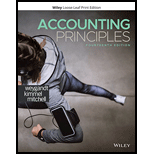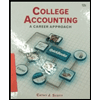
ACCT.PRINCIPLES (LL)
14th Edition
ISBN: 9781119707110
Author: Weygandt
Publisher: WILEY
expand_more
expand_more
format_list_bulleted
Question
error_outline
This textbook solution is under construction.
Students have asked these similar questions
General accounting
Correct Answer
What is the balance of the Building account?
Knowledge Booster
Similar questions
- At the end of the current year, the owners'equity in Beacon Co. is now $425,000. During the year, the assets of the business had increased by $93,000 and the liabilities had increased by $156,000. What must Owners' equity at the beginning of the year have been?arrow_forwardQuick answerarrow_forwardPlease provide the accurate answer to this general accounting problem using valid techniques.arrow_forward
- Please explain the solution to this general accounting problem with accurate principles.arrow_forwardManagement is considering the following independent courses of action to increase net incomearrow_forwardThe Riverfront has sales of $875,600, costs of goods sold of $623,800, inventory of $152,700, and accounts receivable of $85,400. How many days, on average, does it take the firm to sell its inventory assuming that all sales are on credit? A) 79.52 days B) 89.25 days C) 82.94 days D) 91.45 days E) 80.31 daysarrow_forward
arrow_back_ios
SEE MORE QUESTIONS
arrow_forward_ios
Recommended textbooks for you
 College Accounting (Book Only): A Career ApproachAccountingISBN:9781337280570Author:Scott, Cathy J.Publisher:South-Western College Pub
College Accounting (Book Only): A Career ApproachAccountingISBN:9781337280570Author:Scott, Cathy J.Publisher:South-Western College Pub College Accounting (Book Only): A Career ApproachAccountingISBN:9781305084087Author:Cathy J. ScottPublisher:Cengage LearningPrinciples of Accounting Volume 1AccountingISBN:9781947172685Author:OpenStaxPublisher:OpenStax College
College Accounting (Book Only): A Career ApproachAccountingISBN:9781305084087Author:Cathy J. ScottPublisher:Cengage LearningPrinciples of Accounting Volume 1AccountingISBN:9781947172685Author:OpenStaxPublisher:OpenStax College

College Accounting (Book Only): A Career Approach
Accounting
ISBN:9781337280570
Author:Scott, Cathy J.
Publisher:South-Western College Pub

College Accounting (Book Only): A Career Approach
Accounting
ISBN:9781305084087
Author:Cathy J. Scott
Publisher:Cengage Learning

Principles of Accounting Volume 1
Accounting
ISBN:9781947172685
Author:OpenStax
Publisher:OpenStax College